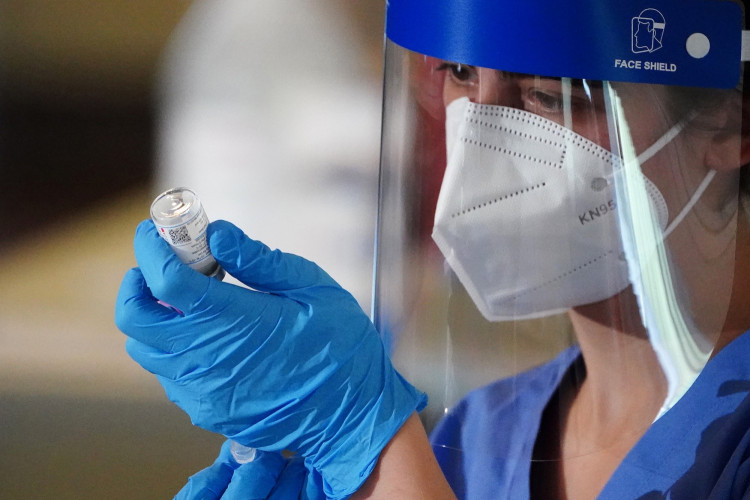The first study of its kind finds that vaccinating pregnant women not only protects them against COVID-19 but might benefit their unborn babies, as well.
It validates guidance from the U.S. Centers for Disease Control and Prevention, saying the three Western vaccines now in use in the United States are unlikely to pose a specific risk to pregnant women.
Published in The American Journal of Obstetrics and Gynecology, the study shows the Pfizer/BioNTech and Moderna vaccines are safe and effective for pregnant and breastfeeding women and might also offer some protection for their babies. It shows vaccinated pregnant women with COVID-19 had higher antibody counts than unvaccinated pregnant women.
The finding "suggests that even if you've had COVID infection, getting the vaccine will lead to a more robust antibody response," said study lead author Dr. Kathryn Gray, a maternal fetal medicine specialist at the Brigham and Women's Hospital in Boston, Massachusetts.
Arguably the most exciting finding is antibodies were also found in umbilical cord blood and breast milk, meaning protection is extended to the unborn child.
"If those antibodies are produced in pregnancy, and while breastfeeding, the baby is clearly getting some of that," according to Dr. Laura Riley, an OB-GYN at New York-Presbyterian Hospital.
Riley said the process of passing immunity from mother to child is somewhat similar to that of the flu vaccine. When given during pregnancy, a flu vaccine produces antibodies that cross the placenta and are "protective for the baby for the first several months of life."
Riley said the hope is the COVID vaccines will have a similar effect. On the other hand, she pointd out it's not yet clear if the vaccines will protect babies from getting sick, or how long that protection might last. "But it's certainly nice to see that there is protection," she said with satisfaction.
The study's 131 participants were vaccinated with either the two-dose Pfizer/BioNTech or Moderna vaccine. Of this number, 84 were pregnant, 31 were lactating, while 16 were nonpregnant, 18- to 45-year-old women. Blood samples were collected during the first and second doses of vaccine and again after six weeks.
The study involved patients and researchers at the Brigham and Women's Hospital, Massachusetts General Hospital, and the Phillip T. and Susan M. Ragon Institute, also in Massachusetts.
"The levels of antibodies, which is what we're looking for in response to vaccination, were similar between the groups," noted Gray.
When researchers compared antibody levels to those of women that had been sick with COVID-19 during pregnancy, the antibody levels in response to the vaccine were higher.
The finding suggests that even if a pregnant woman has been infected by COVID-19, getting either vaccine will lead to a more robust antibody response.
Gray, however, admitted the small sample size raises questions more studies should resolve. She pointed out this study is the largest to date on the topic. She said women were eager to take part in the study.
"People were just volunteering to give us any sort of sample that they could to try to help generate data," she said.
Prior to the release of the study, CDC cited the limited data available regarding the safety of COVID-19 vaccines for pregnant women.
It did assert that experts believe these vaccines are unlikely to pose a specific risk for pregnant women. CDC said studies in animals receiving the Moderna, Pfizer-BioNTech, or Johnson & Johnson's Janssen COVID-19 vaccines before or during pregnancy found no safety concerns.






